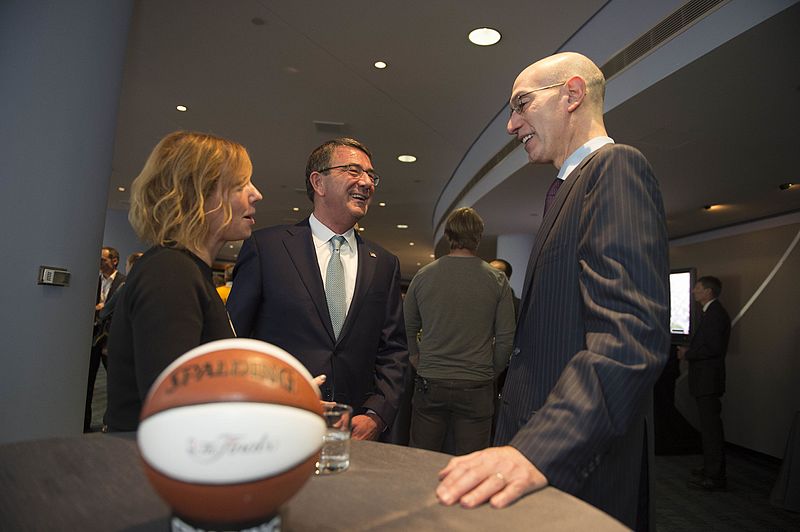Views expressed in opinion columns are the author’s own.
Last Wednesday, the Milwaukee Bucks chose to sit out of their Game 5 in their first-round playoff series against the Orlando Magic in response to the brutal police shooting of Jacob Blake in Kenosha, Wisconsin. The NBA postponed the two other playoff games scheduled for Wednesday soon after. Then the WNBA, MLB, NFL and NHL all also postponed games and practices to protest systemic racism. Tennis star Naomi Osaka withdrew from her Western & Southern Open semifinals match, citing her disgust with the country’s horrific cycle of racism and police brutality.
That same Wednesday, the players in the NBA bubble held a tense meeting following the cancellations where players were able to discuss their frustrations with their circumstances. They had been in the bubble for nearly two months, away from their families. While they played on courts reading “BlackLivesMatter” and wore phrases such as “Equality” on the back of their jerseys, Black people continued to die. At the outset of the NBA restart, there had been so much talk of using this moment as a catalyst for change, but they had entered the bubble and only watched as the world remained the same.
After hours of debate, Lakers star forward LeBron James stated “We’re out,” and the Lakers and the Clippers joined the Bucks as the only teams voting for the season to end. It seemed like the mainstream momentum from July that had been lost in empty corporate statements and meaningless political gestures was starting to pick up again.
This wasn’t just players “raising awareness” again — that’s what the court decals and the bullshit jersey messages were for. This was a genuine strike, which is why it was particularly disappointing to see it fizzle out so fast.
I was honestly surprised when the Bucks got a phone call with Wisconsin Attorney General Josh Kaul and Lieutenant Governor Mandela Barnes. It seemed like there was a concrete plan developing, at least in Wisconsin, regarding the players’ next moves. Part of my initial optimism came from the fact that, from a labor perspective, NBA players would have likely had more leverage and visibility than any workforce that went on strike in the country’s history. Players are the reason the league is alive. They draw audiences and revenue, and they can’t just be replaced at the drop of a hat. Knowing this, one might expect a league predominantly made up of Black men to recognize the direct influence they can have on their own cities, like the Bucks did.
But instead of this group of mostly Black workers leveraging their power to force owners to meet a specific list of demands centered around racial injustice, economic inequality and community building, we got the league to use NBA arenas as voting centers and a return to the hollow jersey slogans and hashtags. Perhaps even more disappointing — yet somehow predictable — was an appearance from former President Barack Obama, in which he implored star players to continue the season.
This abrupt loss of momentum felt familiar. Even after weeks of widespread, constant protests against rampant racism and police brutality this summer, a movement with specific goals rooted in Black radicalism and anti-capitalism quickly became a box to check for politicians and corporations to show us that they “hear” us — without actually contributing anything tangible to the long-term goal of Black liberation (no, I’m still not over the Kente cloth).
Here, the Bucks, Lakers and Clippers similarly had real momentum stifled by an overwhelming liberal force more interested in keeping them hooping than disrupting the status quo. So they’re back to “Vote,” “Love Us,” and “Group Economics” on their backs while Black people continue to be killed by police.
This entire ordeal has shown that multimillionaire and/or celebrity level athletes may simply not have any revolutionary potential. As we saw last Wednesday, even the most socially aware players can have their demands for tangible change quickly quieted to maintain an economic output. At the same time, the rich and famous have their own incentives. Like all wealthy people, this wealthy group of Black men has a vested interest in maintaining their wealth, which usually ends up falling in line with whichever reformist movement inevitably rises to beat down radical challenges to the state of the country. While athletes and celebrities will always be able to make slogans and symbolic acts in the name of awareness, structural change can only come with the mobilization of regular, everyday people.
Malcolm Ferguson is a senior English and government and politics major. He can be reached at mferguso@terpmail.umd.edu.



